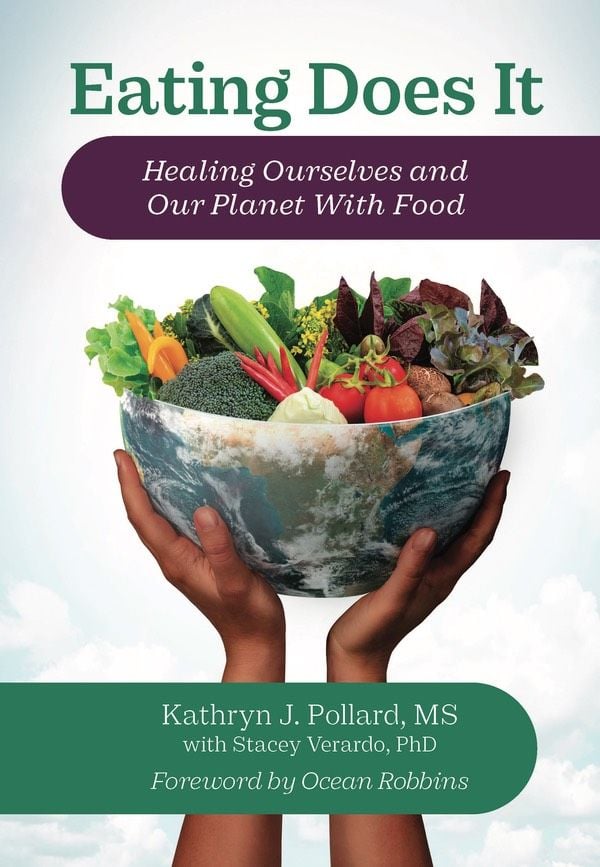
Boy, have I been hearing a lot about ketogenic diets lately. They seem all the rage. Though there are a couple of instances where they can be used to improve health, one being for young children with epilepsy, and the other is advanced cancer patients, if you don’t fall into those groups, this diet may be dangerous for your health. I thought it would be a good time to post an article originally written for PlantbasedResearch.org a couple of years ago about these carb-deficient diets here!
Limiting carbohydrate deprives the body of it of its natural fuel and its short-term store of it in the form of glycogen. Soon it must resort to breaking down muscle for protein. Then it turns to breaking down fat, as it does in the state of starvation, to spare body protein, which is vital to life. Yay, now we’re burning fat! The body breaks down fatty acids for their substrate ketone bodies for energy and enters the state of ketosis. But a ketonic state is supposed to be reserved for actual emergencies (read: starvation situations), which keeps the body in a state of stress, and low in blood glucose. 3
Unfortunately eating this way will catch up with most people adding risk of any and all forms of cardiovascular disease, and distressing the liver, heart, brain, prostate, and sex organs. Think of all that fat clogging arteries of every size, and going to organs, big and small.
Along with the fat in any low-carb diet comes animal protein which adds risk of cancer and liver dysfunction. Also coming along for the ride is an increase in hormone production, both growth and sex, stimulating cholesterol production and weight gain. Also, with more animal protein comes with more heme iron, a powerful pro-oxidant, damaging cells and causing inflammation, which adds risk for all degenerative diseases, including cognitive degradation.4,5 And further, excess animal protein and fat contribute to kidney disease, which is often hard to detect until late stages, but affecting 8% – 16% people worldwide. 5-7
The Blue Zones
The Blue Zones refer to the book by that name by Dan Buettner which reported on the most long-lived and healthiest communities in the world. Buettner and National Geographic found pockets of these happy, healthy folks in Okinawa, Japan, Sardinia, Italy, and Loma Linda, California (Seventh Day Adventists), to name a few. These folks were eating quite the opposite of the present low-carb craze – mainly local, whole plant foods, filled with greens, beans, and starchy vegetables, along with small amounts of various animal foods. This is probably how humans have eaten for hundreds of thousands of years. You can see the commonality of these populations in the diagram below.

Eating this way naturally limits calories without limiting food intake, because whole plant foods have fiber, water and nutrients to fill us up and nourish our bodies. It also protects our colon from nasty metabolites and pathogenic gut bacteria associated with atherosclerosis and cancers of the gut. 8,9 A LCHF diet cannot protect in this way. A whole food plant-based diet can. So eat your veggies every day!
References:
- Johansson, I., Nilsson, L. M., Stegmayr, B., Boman, K., Hallmans, G., & Winkvist, A. (2012). Associations among 25-year trends in diet, cholesterol and BMI from 140,000 observations in men and women in Northern Sweden. Nutrition Journal, 11(1), 40. doi:10.1186/1475-2891-11-40
- Noto, H., Goto, A., Tsujimoto, T., & Noda, M. (2013). Low-carbohydrate diets and all-cause mortality: a systematic review and meta-analysis of observational studies. PLoS One, 8(1), e55030. doi:10.1371/journal.pone.0055030
- Gropper, Sareen S., Smith, Jack L., Groff, James L., Advanced Nutrition and Human Metabolism. Belmont: Wadsworth Publishing. 2005.
- Kell DB. Iron behaving badly: inappropriate iron chelation as a major contributor to the aetiology of vascular and other progressive inflammatory and degenerative diseases. BMC Medical Genomics. 2009;2:2. doi:10.1186/1755-8794-2-2.
- Moe, S. M., Zidehsarai, M. P., Chambers, M. A., Jackman, L. A., Radcliffe, J. S., Trevino, L. L., . . . Asplin, J. R. (2011). Vegetarian compared with meat dietary protein source and phosphorus homeostasis in chronic kidney disease. Clin J Am Soc Nephrol, 6(2), 257-264. doi:10.2215/cjn.05040610
- National Kidney Foundation. Global facts: about kidney disease. https://www.kidney.org/kidneydisease/global-facts-about-kidney-disease. 2016.
- Schwingshackl, L., & Hoffmann, G. (2013). Low-carbohydrate diets impair flow-mediated dilatation: evidence from a systematic review and meta-analysis. Br J Nutr, 110(5), 969-970. doi:10.1017/s000711451300216x
- Lombard KA, Olson AL, Nelson SE, Rebouche CJ. Carnitine status of lactoovovegetarians and strict vegetarian adults and children. Am J Clin Nutr. 1989;50(2):301-306.
- Flanagan, J. L., Simmons, P. A., Vehige, J., Willcox, M. D., & Garrett, Q. (2010). Role of carnitine in disease. Nutr Metab (Lond), 7, 30. doi:10.1186/1743-7075-7-30

